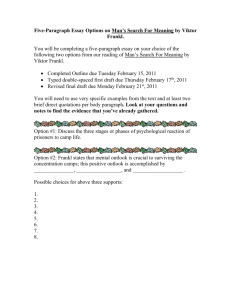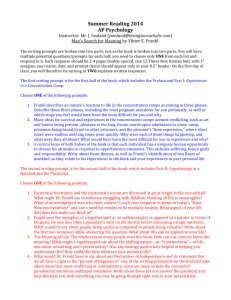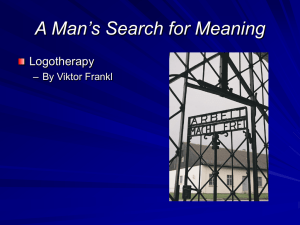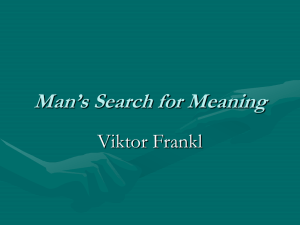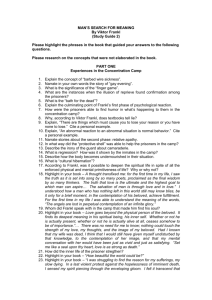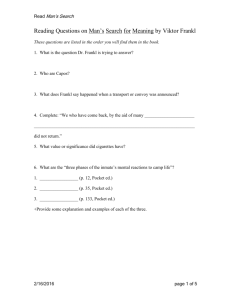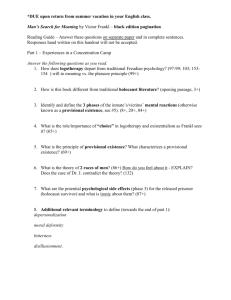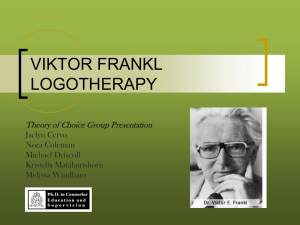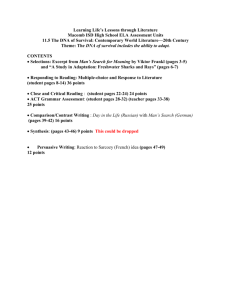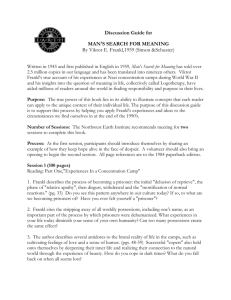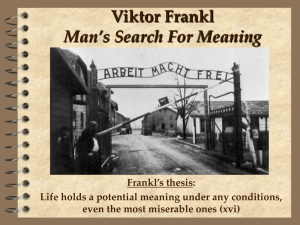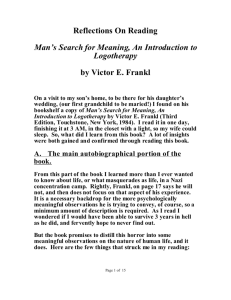Man`s Search for Meaning – Reading Questions Directions: On a
advertisement
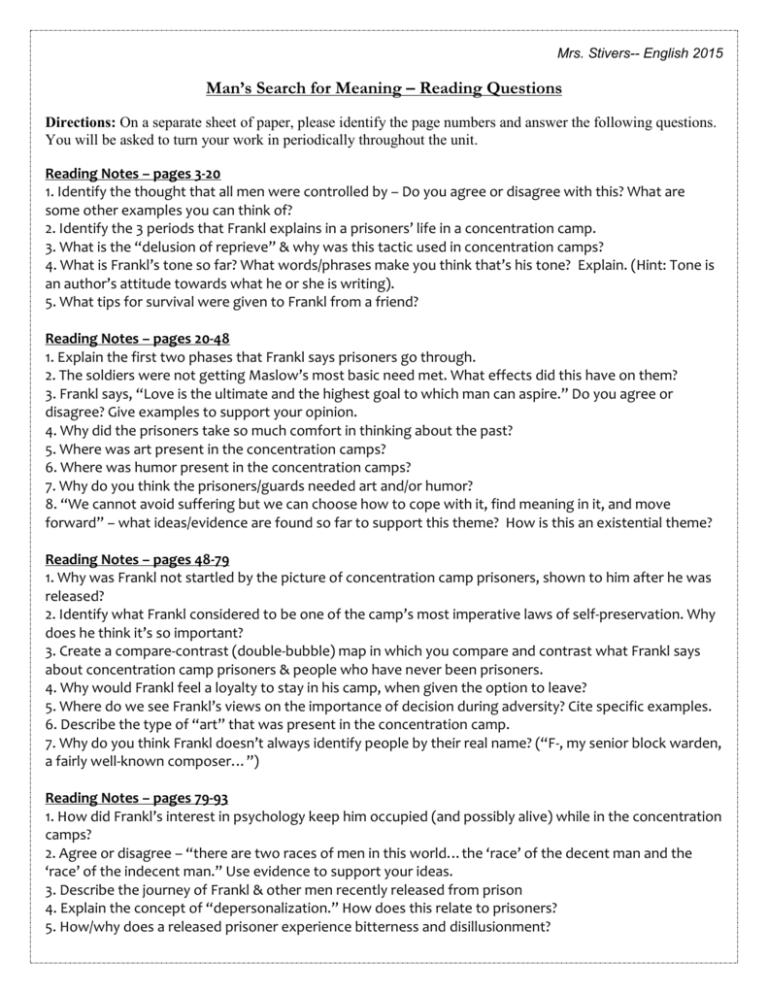
Mrs. Stivers-- English 2015 Man’s Search for Meaning – Reading Questions Directions: On a separate sheet of paper, please identify the page numbers and answer the following questions. You will be asked to turn your work in periodically throughout the unit. Reading Notes – pages 3-20 1. Identify the thought that all men were controlled by – Do you agree or disagree with this? What are some other examples you can think of? 2. Identify the 3 periods that Frankl explains in a prisoners’ life in a concentration camp. 3. What is the “delusion of reprieve” & why was this tactic used in concentration camps? 4. What is Frankl’s tone so far? What words/phrases make you think that’s his tone? Explain. (Hint: Tone is an author’s attitude towards what he or she is writing). 5. What tips for survival were given to Frankl from a friend? Reading Notes – pages 20-48 1. Explain the first two phases that Frankl says prisoners go through. 2. The soldiers were not getting Maslow’s most basic need met. What effects did this have on them? 3. Frankl says, “Love is the ultimate and the highest goal to which man can aspire.” Do you agree or disagree? Give examples to support your opinion. 4. Why did the prisoners take so much comfort in thinking about the past? 5. Where was art present in the concentration camps? 6. Where was humor present in the concentration camps? 7. Why do you think the prisoners/guards needed art and/or humor? 8. “We cannot avoid suffering but we can choose how to cope with it, find meaning in it, and move forward” – what ideas/evidence are found so far to support this theme? How is this an existential theme? Reading Notes – pages 48-79 1. Why was Frankl not startled by the picture of concentration camp prisoners, shown to him after he was released? 2. Identify what Frankl considered to be one of the camp’s most imperative laws of self-preservation. Why does he think it’s so important? 3. Create a compare-contrast (double-bubble) map in which you compare and contrast what Frankl says about concentration camp prisoners & people who have never been prisoners. 4. Why would Frankl feel a loyalty to stay in his camp, when given the option to leave? 5. Where do we see Frankl’s views on the importance of decision during adversity? Cite specific examples. 6. Describe the type of “art” that was present in the concentration camp. 7. Why do you think Frankl doesn’t always identify people by their real name? (“F-, my senior block warden, a fairly well-known composer…”) Reading Notes – pages 79-93 1. How did Frankl’s interest in psychology keep him occupied (and possibly alive) while in the concentration camps? 2. Agree or disagree – “there are two races of men in this world…the ‘race’ of the decent man and the ‘race’ of the indecent man.” Use evidence to support your ideas. 3. Describe the journey of Frankl & other men recently released from prison 4. Explain the concept of “depersonalization.” How does this relate to prisoners? 5. How/why does a released prisoner experience bitterness and disillusionment?
